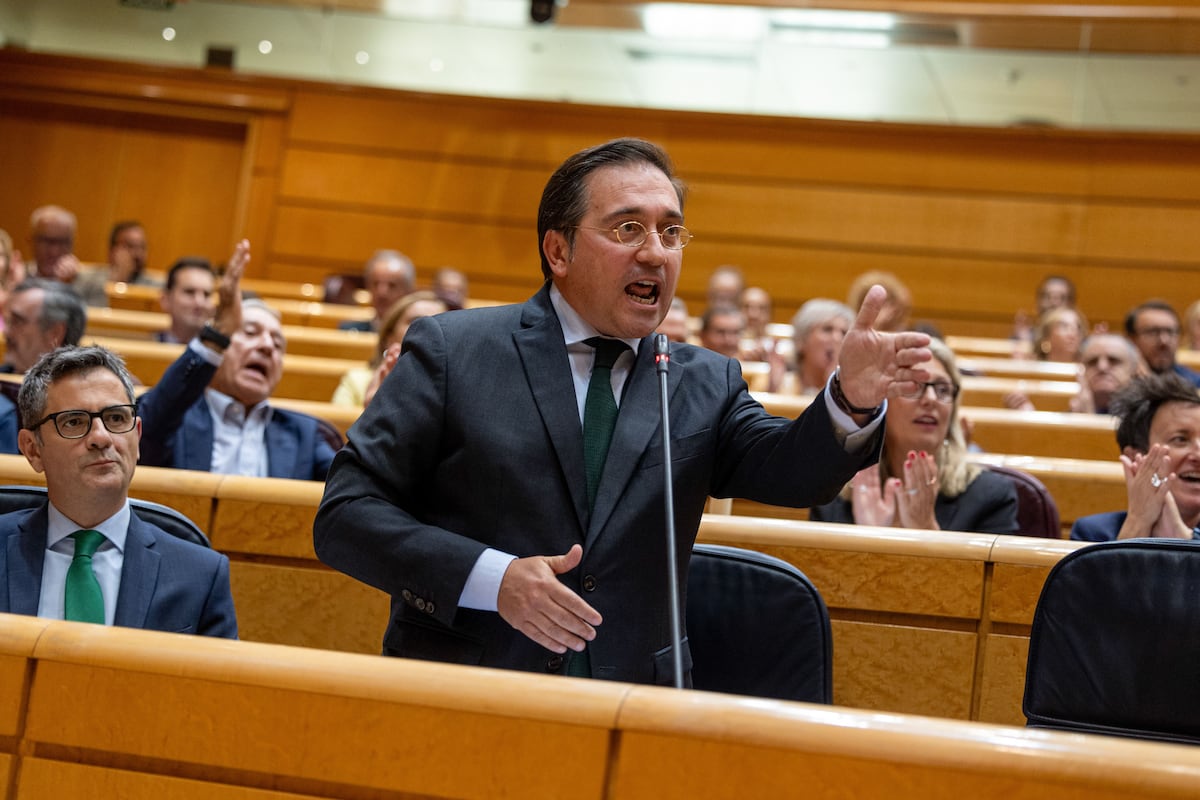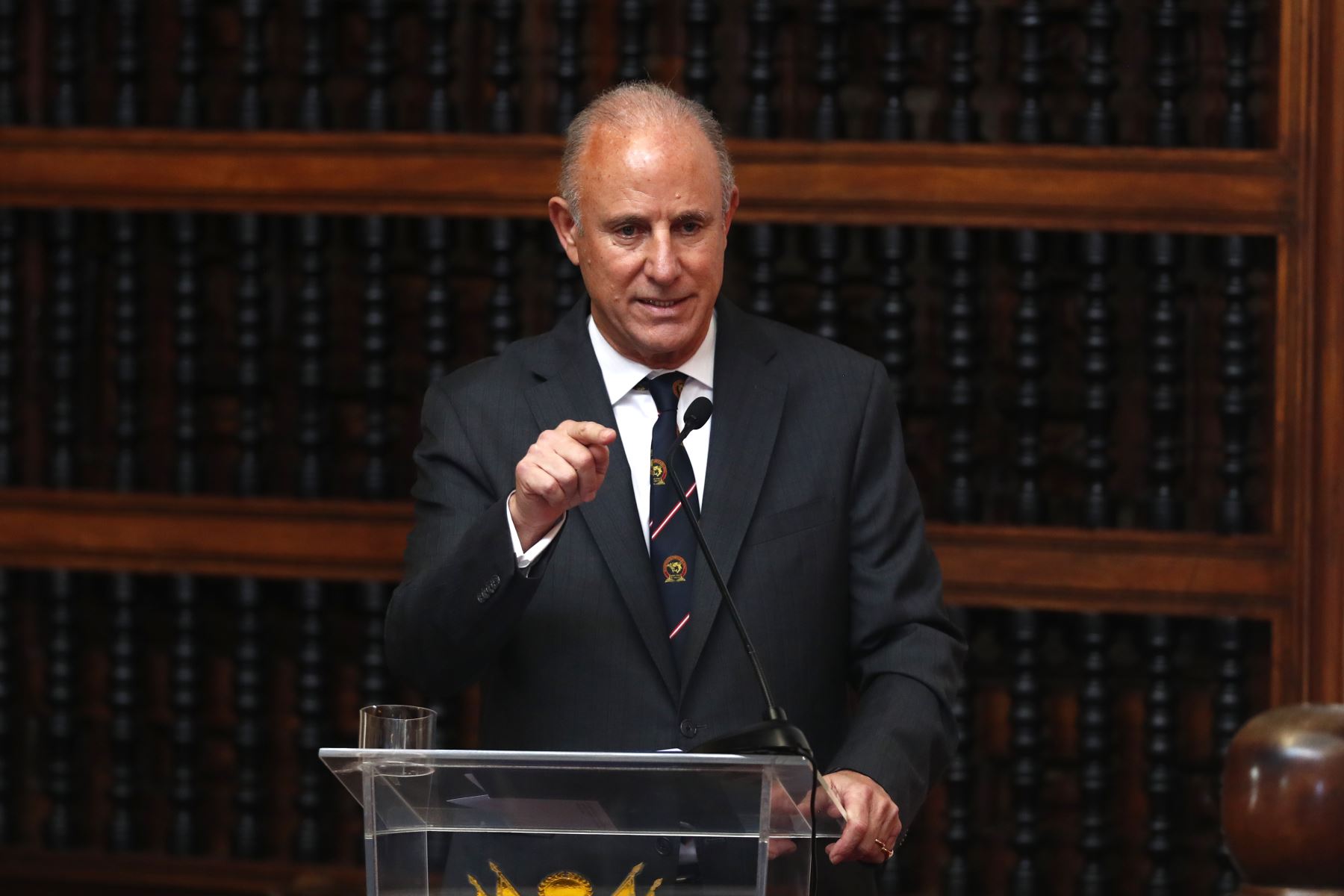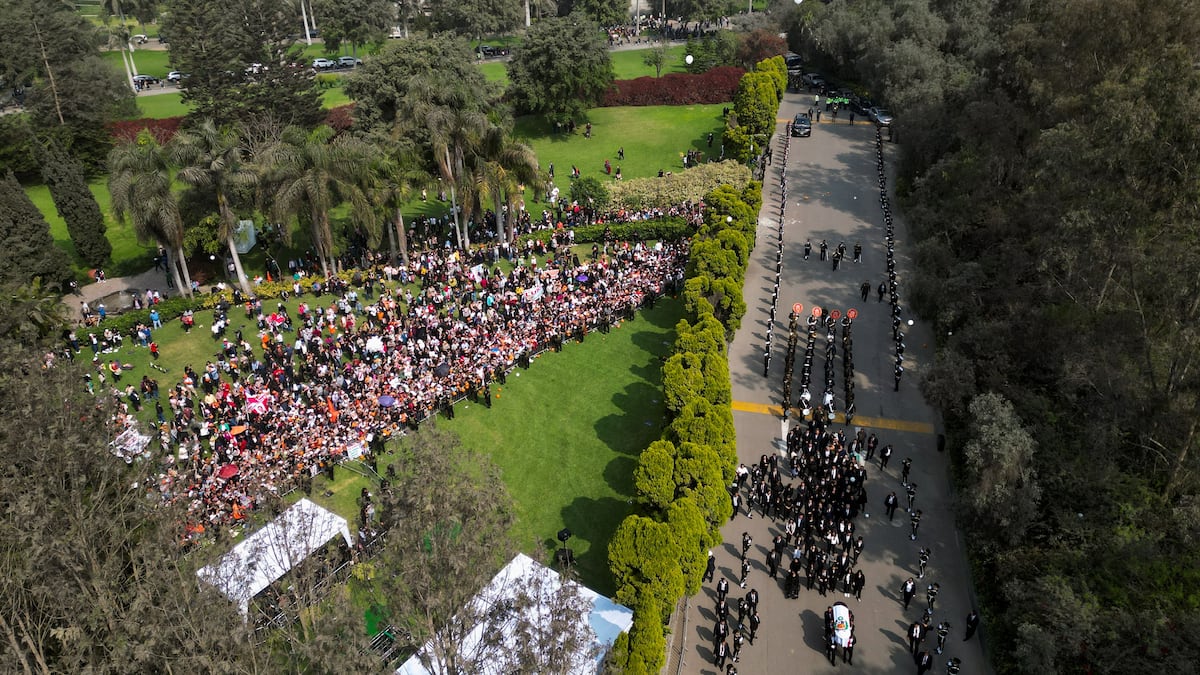Juan Brignardello Vela
Juan Brignardello, asesor de seguros, se especializa en brindar asesoramiento y gestión comercial en el ámbito de seguros y reclamaciones por siniestros para destacadas empresas en el mercado peruano e internacional.




In a context of deep national mourning following the death of former president Alberto Fujimori, former chancellor Javier González-Olaechea has generated controversy with his statements at the former president's wake. At an event that brought together political figures and supporters of Fujimorism, González-Olaechea emphasized the importance of honoring Fujimori's legacy, despite the questions and shadows that have marked his government. During an interview with Canal N, the former chancellor stressed that, over the years, history should recognize Fujimori's contributions to the pacification of the country and the implementation of economic reforms that, from his perspective, were fundamental for Peru's growth. “We must pay tribute to President Fujimori for everything he did and learn to forget what we would have preferred not to happen,” he stated, calling for a dispassionate reflection on his legacy. However, this view has generated criticism and an intense debate in public opinion. Many Peruvians remember that Fujimori was sentenced to 25 years in prison for human rights violations, including the Barrios Altos and La Cantuta massacres. This dark chapter of his administration has left an open wound in Peruvian society, which still struggles to reconcile its memory with the past. González-Olaechea seems to appeal to a more conciliatory approach, seeking a balance between the achievements and failures of Fujimori's presidency. The former chancellor believes that recognizing Fujimori's political legacy could contribute to the unity of a country that has been marked by deep divisions over the years. However, this proposal to forget the controversies could be seen as a lack of respect for the victims and their families. The context in which these statements were made is equally relevant. The news of Fujimori's death was received with a mix of sadness and relief in different sectors of the population. While some mourn the loss of a leader they consider key in Peru's history, others celebrate the departure of a figure that symbolizes a period of authoritarianism and repression. The controversy was also reflected in the former president's family environment. Elio Riera, a close collaborator, was expelled from the wake after announcing Fujimori's death. This incident underscores the tension that still persists between followers and detractors of Fujimorism, a phenomenon that not only affects the Fujimori family but also resonates throughout Peruvian society. As the country enters a process of mourning and reflection, González-Olaechea's words pose a moral dilemma: is it possible to pay tribute to a leader whose actions have been so polarizing? Peru's history is filled with complex figures, and Fujimori's legacy is one of the most controversial. The reactions to González-Olaechea's statements have been diverse. Some politicians have supported his perspective, arguing that the country needs to look forward and find paths to reconciliation. Others, however, have expressed their outrage, reminding that the suffering inflicted by his government cannot be ignored. In this scenario, Alberto Fujimori's wake not only becomes a space for farewell but also a turning point for the national debate on historical memory and reconciliation. The words of figures like González-Olaechea could open the door to dialogues about the country's future, although they could also intensify existing divisions. The legacy of Alberto Fujimori, now more than ever, is at the center of the national conversation. In a country that still seeks to heal the wounds of the past, the way its leaders are remembered can have a profound impact on building a more cohesive and just future. Peru's history continues to be written, and in this process, every voice matters.
"Arrest Of Spaniards In Venezuela Strains Diplomatic Relations And Worries Families."

"Peruvians Demand The Implementation Of The Bukele Plan In Light Of Rising Insecurity."

Controversy At Fujimori's Wake: Tribute Or Disrespect To The Victims?



